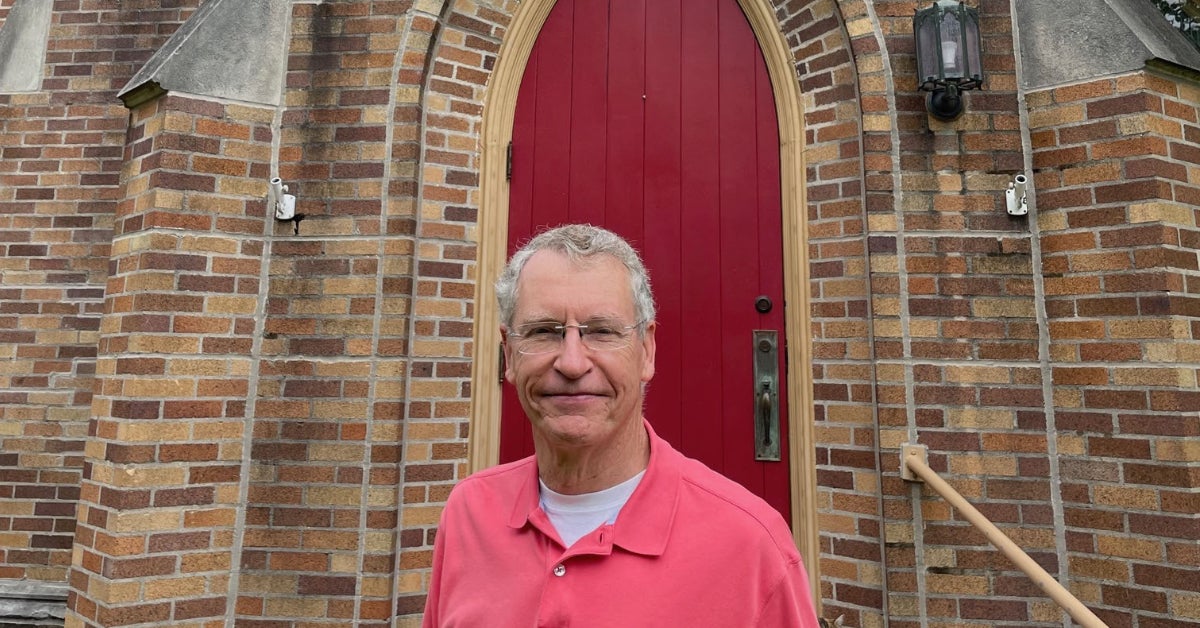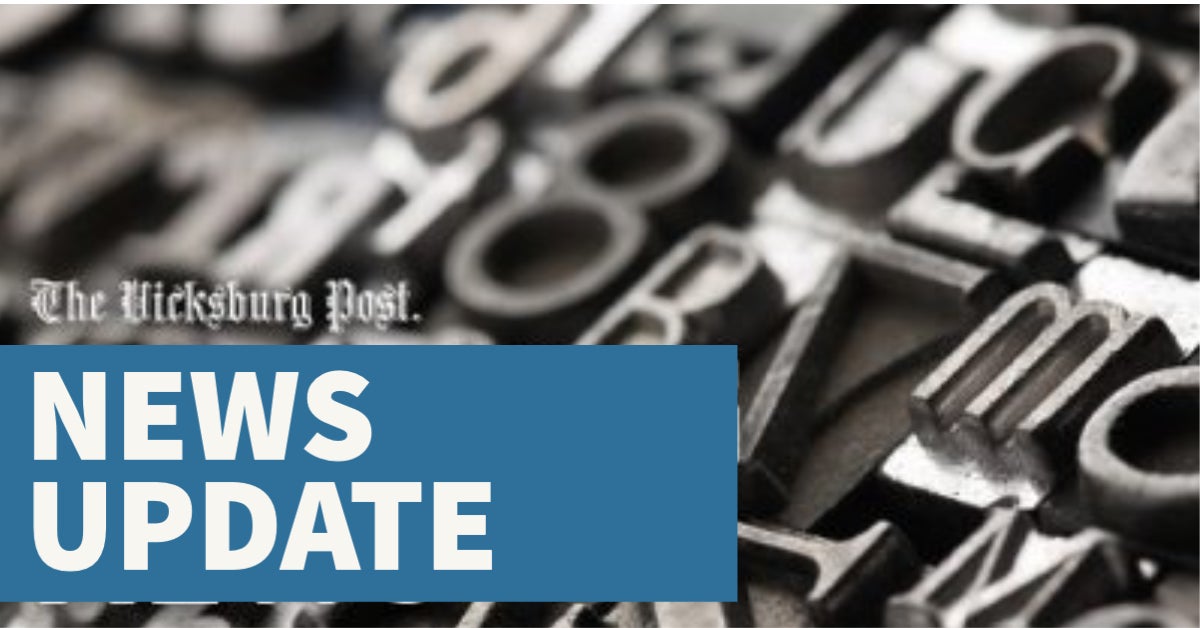St. Alban’s parishioner named to search committee for new Episcopal bishop
Published 4:00 am Sunday, May 14, 2023

- St. Alban's parishioner Richard Price stands at the entrance to St. Alban's Episcopal Church. Price is a member of the 13-member search committee that will help select the next bishop for the Episcopal Diocese of Mississippi. (Photo Submitted)
When the new bishop for the Episcopal Diocese of Mississippi is named, a Warren County resident will have had a part in their selection.
Dr. Richard Price, a retired biologist from the U.S. Army Engineer Research and Development Center and a member of St. Alban’s Episcopal Church in Bovina, is a member of the diocese’s search committee, a 13-member group composed of Episcopalians from across the state, that will be involved in selecting candidates to replace the Rt. Rev. Brian R. Seage, who is retiring in 2024.
“Right now, just starting to get things together,” Price said.
He said committee members were nominated by the members of their parish and their names were submitted to the diocese’s Standing Committee.
“The standing committee is like the executive board for the diocese to take care of the bishop’s office,” he said. “There’s another committee called the executive committee that actually functions like a vestry or ruling body and takes care of finances and at sort of thing. The standing committee is designated to take care of the ecclesiastical aspects of the diocese.”
The committee nominations, Price said, were reviewed by the members of the standing committee and they selected the members based on a resume or a short biography and the nominee’s location.
“What they did was select people from every convocation in the diocese, which I believe there are seven, then we were notified. We’ve had a couple of meetings already and begun to develop the profile,” he said.
Price said the search committee is a subcommittee of the standing committee.
“We oversee the nomination process; we produce educational material for the diocese,” he said. “We develop a profile, which essentially is a document that describes the programs in the diocese; gives a little bit of history of the diocese.”
There is also some educational material in the profile that talks about what a bishop is, because the profile goes nationwide.
“It covers a little bit of the discernment process for the bishop or lays out how we will decide on viable candidates,” Price said. “Our role is to develop a slate of three to five candidates and then we turn that over to the standing committee.
“They will review them and accept them or they can reject them all, but more than likely they’ll accept them.”
He said there is also a transition committee that gets the list and takes the candidates to various parts of the state, gives them an indication of the diocese and meets parishioners in various parts of the state. The election to select the bishop occurs at the diocese’s Annual Council in February.
The search process is somewhat like the process for a new rector because a potential candidate for bishop can express an interest in the diocese.
One difference, he said, is the diocese must advertise the position nationally.
“Essentially the profile for searching for bishop,” Price said. “Bishop is much larger than if you’re searching for a rector of a parish and so the approval process is much longer for a bishop.
“You have to have a majority vote from the annual council, and then the selectee has to be approved by the national church,” he said, adding there is a consent process the selectee must go through in which 51 percent of the dioceses in the U.S. consent to the election before they are ordained as bishop by the presiding bishop over the Episcopal Church in the U.S.
“I was very, very honored to be selected and serve for the church,” Price said of his appointment. “I’ve been busy for the last, I guess six weeks, helping get things together.”
He said 13 members were selected for the committee to avoid tie votes when the committee votes on candidates.
“We get to screen it down from whoever applies down to the three to five finalists, and we get to meet them,” he said.
“We are conducting an interview or a survey, I should say at this point, for the next couple of weeks of the Episcopalians in Mississippi,” Price said. “They have an opportunity to answer some questions and fill out some forms to help us decide what we are looking for in a bishop.
“There are a number of qualities and there’s a number of things depending upon the size of the diocese and location so we certainly are looking for the basic qualifications. It has to be an ordained priest, and 30 years of age or older.”
Price said the commission has not put out the call for resumes because it is still developing the description of the position and the diocese for potential candidates.
“The candidates who might consider this (Mississippi), they’ll want to know a little bit about what the diocese is doing, what the churches are doing. There’s a little bit of that in there, but there will also be some sections in the profile that talks about ‘here’s what we want in a bishop for Mississippi,’” he said.
“The bishop is the boss, essentially, of all the priests and the parishes and he or she can be very important in keeping the priests preaching; doing their job.”






